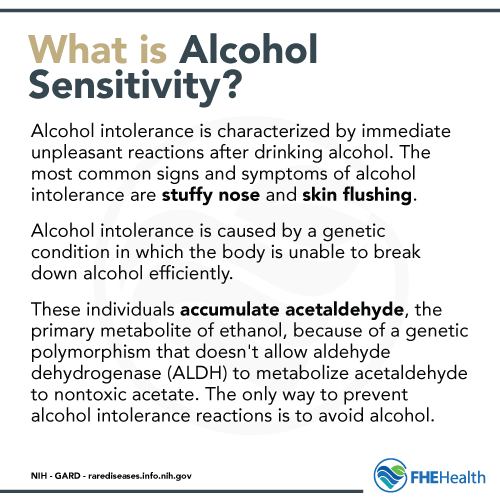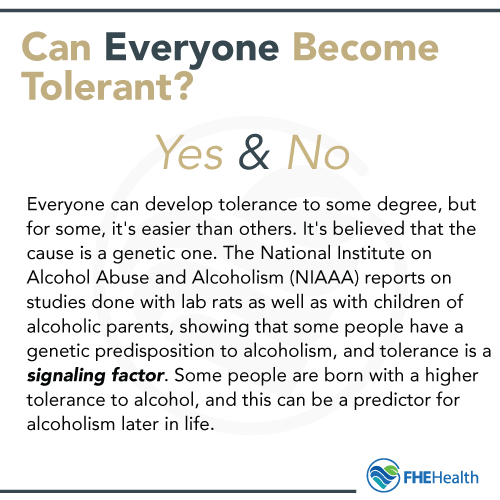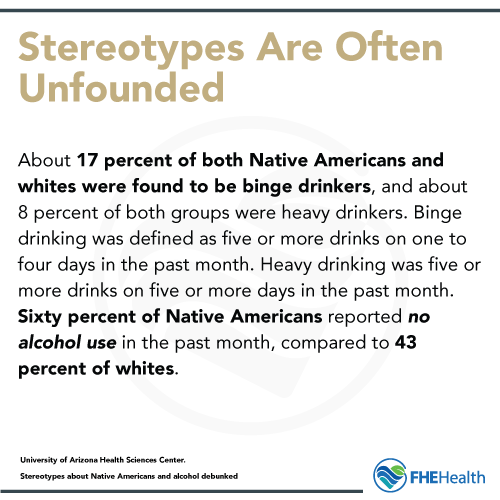
|
|
What is Alcohol Intolerance?
You may have heard of alcohol tolerance, which is a social concept. People with a high tolerance can drink a lot without becoming intoxicated, and people with a low tolerance are the opposite.
What you may not be aware of is that the oversimplification of the concept of alcohol tolerance is hiding another issue from the public: alcohol sensitivity.
This is a real physical issue, and because it’s not well-known, it’s difficult to diagnose and treat effectively. In this piece, we’ll discuss some of the issues surrounding alcohol sensitivity, including what it is, who has it and whether there are genetic trends that can help explain societal stereotypes about tolerance and sensitivity to alcoholic beverages.
What Is Alcohol Sensitivity?
 While a common misnomer for alcohol sensitivity is “alcohol intolerance,” which implies that a person gets drunk quickly, alcohol sensitivity isn’t just a low tolerance to alcohol. While people with a low alcohol tolerance may become intoxicated after a single drink, those with alcohol sensitivity can have a physical reaction to consuming alcohol before they even feel the side effects.
While a common misnomer for alcohol sensitivity is “alcohol intolerance,” which implies that a person gets drunk quickly, alcohol sensitivity isn’t just a low tolerance to alcohol. While people with a low alcohol tolerance may become intoxicated after a single drink, those with alcohol sensitivity can have a physical reaction to consuming alcohol before they even feel the side effects.
People with acute alcohol sensitivity, according to the National Institute of Health’s Genetic and Rare Disease Information Center (GARD), tend to suffer from either or both of the following symptoms of alcohol intolerance when they consume even a small amount:
- A physical reaction to alcohol, not unlike an allergic response. Skin flushing, itchiness, and a feeling of being hot and feverish are commonly reported.
- People with alcohol sensitivity are also known to be much more susceptible to bad hangovers. This is likely where the line blurs between sensitivity and tolerance.
Sometimes, what appears to be alcohol sensitivity is actually an allergic reaction to something in a given alcoholic beverage. Some people are allergic to certain grains or botanicals which may be contained in a specific drink.
There’s also such a thing as artificial alcohol sensitivity, typically caused by an adverse reaction to mixing alcohol with certain medications. People with chronic conditions often find this to be the case when they switch medications or change the dosage.
Violent Aversion vs. High Tolerance
As implied above, there’s no direct link between alcohol sensitivity and tolerance. You’ll often find that people with alcohol sensitivity also have a lower than average tolerance, but this is more due to the fact that these people don’t drink as regularly as their peers on account of the discomfort they experience when they do. This is an area where a correlation, however strong, doesn’t indicate an actual causal relationship between two conditions.
People with a low tolerance for alcohol typically don’t like to drink a lot because of their low tolerance, but as we’ll discuss next, it’s possible to change this tolerance.
Allergy to Alcohol
People who suffer from alcohol sensitivity aren’t likely to be able to get past it easily, if at all, because the physical symptoms make it too uncomfortable to process alcohol. There is no overcoming an alcohol allergy from prolonged use. For example, if you’re allergic to peanuts, you will continue being allergic to peanuts.
Can Most People Build Up a Tolerance to Alcohol?
 Yes and no. Everyone can develop tolerance to some degree, but for some, it’s easier than others. It’s believed that the cause is a genetic one. The National Institute on Alcohol Abuse and Alcoholism (NIAAA) reports on studies done with lab rats as well as with children of alcoholic parents, showing that some people have a genetic predisposition to alcoholism, and tolerance is a signaling factor. Some people are born with a higher tolerance to alcohol, and this can be a predictor for alcoholism later in life.
Yes and no. Everyone can develop tolerance to some degree, but for some, it’s easier than others. It’s believed that the cause is a genetic one. The National Institute on Alcohol Abuse and Alcoholism (NIAAA) reports on studies done with lab rats as well as with children of alcoholic parents, showing that some people have a genetic predisposition to alcoholism, and tolerance is a signaling factor. Some people are born with a higher tolerance to alcohol, and this can be a predictor for alcoholism later in life.
There are several different types of alcohol tolerance (as well as alcohol intolerance), but the most common is functional tolerance. This is the common case of a person drinking more and becoming more and more tolerant of the alcohol they’re consuming. Part of this tolerance is a result of the body making physical adjustments to the increase in the amount present in the system. The liver starts to metabolize alcohol more efficiently.
This can lead to a person frequently consuming much more alcohol than is safe and healthy in a single session because they don’t realize the effects. In problem-drinking terminology, this is typically how high-functioning alcoholics are created.
Alcohol Sensitivity, Race and Culture
There are several racial and cultural narratives surrounding alcohol that may be affected by a deeper understanding of alcohol tolerance and alcohol sensitivity. Are some groups more vulnerable to alcohol sensitivity? What about the inability to drink a lot (alcohol intolerance)? Are these all based on stereotypes rather than science?
Who’s Most Vulnerable to Alcohol Sensitivity?
According to GARD, alcohol sensitivity is most common among East Asian people. This is due to a sequencing issue in the DNA that doesn’t allow a certain component of alcohol to break down normally in the body, leading to a physical reaction.
This leads scientists and doctors to believe that members of other populations who exhibit sensitivity to alcohol may have a similar genetic condition, but the reasons why this occurs are not well understood.
Racial Stereotypes Regarding Alcohol
 A notable racial stereotype regarding alcohol tolerance and consumption is that Native Americans abuse alcohol more than other races. This line of thinking is refuted via a 2016 study done by the University of Arizona, as reported in a Science Daily Article: “In contrast to enduring stories about extraordinarily high rates of alcohol misuse among Native Americans, researchers have found that Native Americans’ binge and heavy drinking rates actually match those of whites.”
A notable racial stereotype regarding alcohol tolerance and consumption is that Native Americans abuse alcohol more than other races. This line of thinking is refuted via a 2016 study done by the University of Arizona, as reported in a Science Daily Article: “In contrast to enduring stories about extraordinarily high rates of alcohol misuse among Native Americans, researchers have found that Native Americans’ binge and heavy drinking rates actually match those of whites.”
Another stereotype is that African-Americans and Latinos have a high rate of long-term alcoholism. One study found that while this is true, it’s not a genetic issue unique to these specific groups but, rather, a sign of the disparity in available treatment for these racial groups.
Cultural Norms and Alcohol Consumption
Outside of race, alcohol in culture can have major implications as well. For example, American college students treat it as a badge of honor to have a high alcohol tolerance, while those who can’t drink as much — either due to intolerance or alcohol sensitivity — are perceived as weak and their unwillingness to engage in those activities a ‘buzzkill’.
On the other hand, there are other social groups that have opposite views on alcohol consumption. In some religions, like the Mormon Church, drinking is considered a sin and something that devoted churchgoers should not do.
In others, like in Catholics, drinking is a part of crucial religious rituals, although tolerance and sensitivity don’t factor into the practice of communion, it does have proximity and acceptance of alcohol.
Everyone Is at Risk
What this shows is while some ethnic, racial, and cultural groups may have a predisposition to lower alcohol tolerance or alcohol sensitivity, there are no hard-and-fast rules, and there are risk factors for everyone developing problematic drinking habits.
No matter who you are and how much — or how little — you can drink “without getting drunk,” alcoholism doesn’t discriminate as much as some people think. It can affect anyone, so everyone has to be aware of the dangers of overconsumption.
At FHE Health, we’re here to help anyone dealing with substance abuse issues, as well as a wide range of mental health conditions. If you or a loved one are struggling with addiction, contact us today and learn about your options for a safe and healthy recovery.






